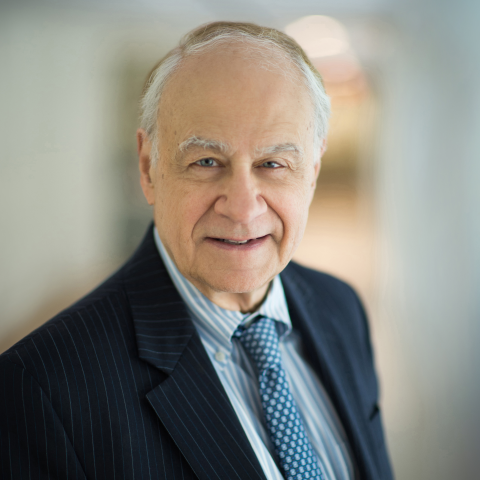Chilton Williamson Jr. has written a historically rich, erudite, and serious critique of what he calls contemporary "democracy" (and what others might label "advanced liberalism"). After Tocqueville is an intellectual-history feast, in which one meets the major thoughtful and humane critics of modern democracy, from Chesterton, Belloc, Maine, and Bagehot to Orestes Brownson, Ortega y Gasset, and Jacques Ellul. Williamson, a novelist felicitous in his use of the English language, is a senior editor at Chronicles and a long-time exemplar of literary conservatism (à la Russell Kirk) as opposed to political conservatism. In the 1970s and 1980s, he was the literary editor of National Review.
The many strands of American conservatism could, at one level, be reduced to two: the Whig optimist and the Tory pessimist. Williamson's book is a classic example of conservative cultural pessimism (with a good dash of determinism) of the type that conservative optimist Arthur Herman decried in his 1997 book The Idea of Decline in Western History.
Like Tocqueville, Williamson characterizes democracy as a "social state," an encompassing cultural and social regime and way of life, not simply a political system. With this in mind, Williamson has, as a primary purpose of this book, to refute Francis Fukuyama's claim that we have arrived at the "end of history" with the ideological triumph of liberal democracy. Drawing on theologian Reinhold Niebuhr's Christian eschatology, Williamson sees Fukuyama's thesis as yet another in the age-old list of efforts by secular-liberal philosophers to depict history as a "redemptive process." This historical progressivism, Williamson rightly suggests, fails to recognize the very real and perennial problem of evil in the world and the different forms that it might take. For Niebuhr (and Williamson), core historical problems are never completely resolved but lead instead to new dilemmas and new evils. The belief that man can resolve his problems through history is the old sin of pride, the sin of Adam.
Williamson is at his best in diagnosing the pathologies of advanced liberalism. From Robespierre through Gramsci to their 21st-century philosophical epigones, the Left has been on a "long march through the institutions." Moreover, this long march "has succeeded, or nearly, in accomplishing what the international revolution of the proletariat failed to do." In this particular analysis Williamson is spot on. I remember that, in the aftermath of the fall of the Berlin Wall, with the worldwide advance of market capitalism and political democracy, and even a Democratic president declaring that "the era of big government is over," many conservatives were triumphantly announcing "We've won."
Yet, at the same time, multiculturalism and political correctness were gaining a stranglehold on America's universities and public schools. The new and much more insidious concept of "diversity" replaced the older view of affirmative action. Whereas affirmative action was theoretically, although not in practice, an attempt to remedy past discrimination, diversity means equality of result for groups as an end in itself, irrespective of past discrimination.
Meanwhile, America's government, legal, academic, and media elites wielded cultural-Marxist tools, artificially dividing ethnic, racial, gender, and linguistic groups into essentially two categories: dominant and marginalized. Any laws that had a negative "disparate impact" on a "protected class" (a "marginalized" group) were ipso facto discriminatory. The goal of New Class elites is to fundamentally transform the United States, culturally, socially, and intellectually as well as politically.
Williamson notes that, across the West, the entire civilizational edifice of mores, manners, customs, institutions, traditions, and beliefs has been under attack and, in large part, has been undermined. This cultural revolution has accomplished what the old Bolsheviks were unable to do. It has greatly weakened Christianity, the family, constitutional law, the idea of the nation-state, authentic patriotism, and genuine self-government.
Williamson argues that this modern democracy is a "false religion." While the liberal project ostensibly favors human rights, in fact it is essentially a means by which the "upper strata of society" attempt to "escape from the authority of religion" while "establishing a secular church to which the lower orders are made subservient."
From the 1920s to the 1960s, Marxism had a strong appeal to the Western intellectuals who promoted the advance of the Left. Since then, multiculturalism has replaced it as the central ideology of the Western intelligentsia. Quoting the prominent philosopher Kenneth Minogue, Williamson points out that while multiculturalism is not necessarily antagonistic to religion per se, it is united with Marxism in a hatred of Christianity specifically.
Williamson and here he cites sources as diverse as Christopher Caldwell, Oriana Fallaci, Prince Charles, Enoch Powell, and Algeria's President Boumedienne portrays the democratic nation-states of Europe as unable to respond effectively to large-scale immigration from the non-liberal Muslim East. This is, the author tells us, because the dominance of advanced liberalism has so corrupted the West that it cannot even defend liberal principles and democratic institutions. Instead, Western leaders respond with "platitudinous verbiage" about "migrant rights" and "welcome the stranger" while simultaneously turning legitimate criticisms of immigration policies and Islamic practices into "hate crimes."
A major premise of the book is the Tocquevillian concept that mores (the character of a people) are even more important than a nation's core institutions. In a revealing passage, Williamson writes: "Democracy, to succeed, must be more than self-government. It must be the love of self-government."
But where would this love of self-government come from? Alas, for Williamson there is no way out. In the end, although he enjoys the Western lifestyle in Wyoming and is obviously an "American conservative," there is little he depicts in the American regime (at least as presented in this book) worth conserving or even restoring.
In examining America's history, Williamson portrays a string of flawed ideas and individuals. Paraphrasing Emory philosophy professor Donald Livingston, he muses that "the republic that has been the aim and ideal of the American Founders has been impossible." In The Federalist Papers, Madison and Hamilton "made a serious judgment in error" by advocating a republican regime over too large a territory. But, of course, the Founders did not aim to create a small classical republic. Instead, they explicitly advocated a "new science of politics" that envisioned an extended republic, with representation, federalism, and a compound regime that was both republican (popular) and constitutional (limited).
In Federalist 1, Hamilton stated that the purpose of the Constitution was "to decide" whether societies "are really capable or not of establishing good government from reflection and choice or . . . destined to depend . . . on accident and force." After Tocqueville is saturated with a determinism (the liberal New Class is, we are told, "securely entrenched" and "unassailable") that essentially argues that the Founders' experiment has failed. For the author, Jefferson's "unconstitutional Louisiana purchase" was the "death knell of republicanism"; Jacksonian democracy included "socialist aspects"; and the period of Republican-party dominance from Lincoln to Coolidge was the rule of "plutocracy."
The book is dedicated to "John Lukacs, mentor and dear friend." Not surprisingly, then, Williamson takes a Lukacsian view of the Cold War. The half-century struggle between the United States and the Soviet Union was not primarily a conflict between liberal democracy and Communist totalitarianism, but, in Lukacs's terms, "essentially a classic balance-of-power rivalry." Williamson believes that Reagan's foreign policy, with Jeane Kirkpatrick as the drummer, was too "ideological" and "often aggressive."
Moreover, he says, Reagan gets too much credit for bringing the Soviets to heel ("a great oversimplification"). At the same time, however, Reagan is partially blamed for some of America's post-Reagan foreign policy, because he "inspired" the development of "evangelical democracy" during the three successive presidencies that led to the "conflation of democratist ideology and ultranationalist patriotism." Thus, Americans today are the "First World's most aggressive nationalists."
Williamson states that "the concept of American exceptionalism has always been essentially a pleasant fiction, soothing to a portion of the American public." But the notion of American exceptionalism has always been as much an empirical or descriptive concept as a normative one. Writers as diverse as Tocqueville, Werner Sombart, Louis Hartz, and Seymour Martin Lipset have noted that America has been different from Europe and other advanced nations in important ways. America has never had a hereditary aristocracy, and, partly for this reason, never had a major political party that is explicitly socialist or social-democratic. The World Values Survey consistently reveals that Americans are an empirical outlier, more religious, individualistic, and patriotic than other peoples.
Louis Hartz argued that all of America's major political figures Washington, Jefferson, Hamilton, Jackson, Calhoun, Lincoln, Wilson, and FDR and his Republican opponents were neither "conservative" nor "social-democratic" in the European sense, but simply different strains of "Lockean liberal" (whose stance he deplored as an "irrational" combination of Horatio Alger economics and American Legion patriotism).
These criticisms aside, Williamson's tour d'horizon of advanced liberalism is worth the read. Conservative Whigs should grapple with Tory ideas. Policy wonks working for Rubio, Ryan, and Jindal might not find "useful" legislative prescriptions in these pages, but they will gain a greater historical and philosophical understanding of modern and postmodern challenges to American self-government and Western civilization.














